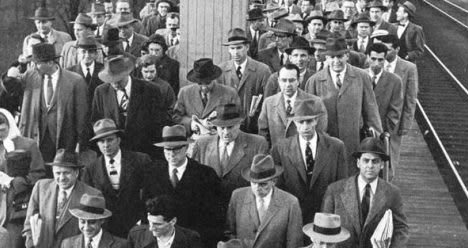 This is from the opening paragraph in the General Introduction of The Library of Living Theology. The first volume of the series appeared in 1952, and thus the General Introduction probably also appeared then:
This is from the opening paragraph in the General Introduction of The Library of Living Theology. The first volume of the series appeared in 1952, and thus the General Introduction probably also appeared then:
As we enter the second half of the twentieth century, religion and theology are less likely to be neglected by thinking men. Whatever may be the causes of the present-day return to religion, the fact remains that religious thinking has again become intellectually respectable. As against the climate of a generation and more ago–when the notion of a ‘Christian intellectual’ was almost a contradiction in terms–we now see religiously minded men–motivated in their thinking by basic religious and theological assumptions–taking a more and more prominent and commanding place in the world of thought (Charles W. Kegley (ed.), The Theology of Emil Brunner, vii).
It seems to me that the confidence expressed in this announcement changed, and rather quickly. I imagine that by the end of the sixties the tide was already in ebb. Perhaps not universally since serious theological conversation did continue in institutions of higher learning and amongst their participants. But this is more an intra-mural than public conversation. Change in both church and culture shifted the focus of ‘thinking men’–of thoughtful people–with the result that religion and theology were not merely neglected but often rejected.
No doubt many factors were at play in both church and culture that led to this unanticipated neglect. No doubt some factors at work in the religion and theology of the period also contributed.
My point here is not an attempt to delineate these factors. Rather, I am simply musing on the confidence of the series editors in mid-century USA who did not anticipate the seismic shifts about to rock their world.
And I am wondering whether and how theologians might again find the means of commending the gospel in the cultural context in which now live. This is necessary, not as an adjunct to the gospel but, if we would learn from the ancient apologists, the Church Fathers, the great preaching bishops, medieval monks, and reformers, etc., as a part of what faithful and fruitful gospel proclamation means and requires.